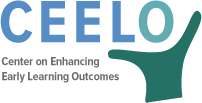This article from EDC’s David Jacobson highlights a new approach to raising achievement for low-income children that combines Prenatal through Grade 3 (P-3) quality and alignment initiatives, family engagement, and child and family support services. Examples in Cincinnati, Omaha, and Multnomah County demonstrate effective, results-oriented partnerships among elementary schools, community-based preschools, and other early childhood organizations.
State education leaders and early learning policy makers are increasingly working together to coordinate fiscal and human resources to ensure children experience consistently high quality learning experiences before they enter school and into the elementary school years. Early childhood educators and K-3rd grade staff are working together to align standards, curriculum and assessment, as well as promote leadership and professional development, so that all have the skills and knowledge needed to support children’s learning across ages and grades.
Building Capacity to Enact Change for Classroom Quality Improvement in New Jersey
State Education Agencies (SEAs) across the country are working to directly impact early childhood teaching and learning in local education agencies (LEAs). To do this, the SEA must rely on local change agents to increase classroom quality across a state. The work presented in this paper set out to build the capacity of educators, teachers and leaders in New Jersey to spearhead change in LEAs with the support of the SEA.
Effective Components of Successful Early Learning-to-Kindergarten Transitions
This webinar features CEELO’s Shannon Riley-Ayers who presented on three components that support a child’s successful transition to school: leadership, effective instruction, and family and community engagement. She was joined by a principal and a superintendent from Oregon who shared successful family engagement and school readiness efforts and how to increase the readiness of entering kindergartners.
Building State P-3 Systems
This webinar focuses on the SEA role in supporting P-3 system building at the state and local levels, drawing on a recent study of three states that have devoted significant attention and resources to P-3 efforts: Oregon, Pennsylvania, and Massachusetts. Each of these states has developed state-wide P-3 policy initiatives regarding standards, assessments, and instruction as well as targeted programs to support local P-3 community partnerships. After providing an overview of each state’s P-3 work, the webinar discusses nine recommendations that emerged from the case studies.
Building State P-3 Systems: Learning from Leading States
This policy report focuses on the state education agency (SEA) role in supporting P-3 system building at the state and local levels. Included in the report are case studies of three states that have devoted significant attention and resources to P-3 efforts: Oregon, Pennsylvania, and Massachusetts. Each of these states has developed statewide P-3 policy initiatives regarding standards, assessments, and instruction as well as targeted programs to support local P-3 community partnerships. The paper presents a number of themes and patterns that emerged from the comparison of the three states and concludes with 9 recommendations to help guide P-3 system-building.
A P-3 Approach and its Effectiveness in Closing Achievement Gaps: Hawaii’s P-3 Initiative
This presentation describes implementation of the Hawaii P-3 Initiative, along with findings from a five-year RAND evaluation of the Initiative which showed a statistically significant improvement in third grade reading scores in the five communities, narrowing the achievement gap. CEELO’s GG Weisenfeld presented with Karen Lee and Kim Guieb from Hawaii P-20 at the National Association of Elementary School Principals on July 7 2016 in National Harbor, MD.
Pre-K: The Starting Line for Positive Attendance Patterns
This presentation was a session at the Every Student, Every Day National Conference on June 10, 2016. CEELO’s Melissa Dahlin discussed root causes for absenteeism in pre-K and strategies to address them from a cross-sector state and local perspective. Danielle Ewen (EducationCounsel) and Michael Katz (Urban Institute) shared findings and insights from a study that examined pre-K absenteeism in DC.
Quality Matters: National Initiatives to Support Inclusion
This presentation shares initiatives, resources, and lessons learned to support state and local efforts in developing quality systems of inclusive services. Participants will have an opportunity to review the recommendations from the federal Position Statement on Inclusion and discuss how these recommendations can work for them. Jim Squires (CEELO) presented with Beth Caron (RTT-ELC TA) and Shelley deFosset (ELC TA and PDG TA) at the National Inclusion Institute on May 11, 2016 at Chapel Hill, NC.
Alternatives to Early Childhood Suspensions, Part 3
Alternatives to Early Childhood Suspensions is a series of three presentations Diane Schilder staff gave to leaders from New Hampshire Title I schools. Part 3 discusses practices that support young children’s socio-emotional development, provides strategies to address issues that arise, and offers resources and supports for leaders, teachers, and teaching teams.
State Approaches to Family Engagement in Pre-K Programs
This policy brief focuses on approaches to family engagement in state funded pre-K programs. It discusses why family engagement is important, describes approaches to developing program guidance, and offers strategies to support effective implementation.
Pre-K Attendance – Why it’s Important and How to Support It
This document originates from a state request for information on chronic absenteeism with regard to early childhood. It provides information on potential causes of absenteeism, examples from cities and states to address it, and available resources.
Alternatives to Early Childhood Suspensions, Part 2
Alternatives to Early Childhood Suspensions is a series of three presentations Diane Schilder staff gave to leaders from New Hampshire Title I schools. Part 2 provides a video for reflection on how challenging behaviors are address and discusses policies, procedures, practices, and supports to have in place to prevent challenging behavior form occurring.
